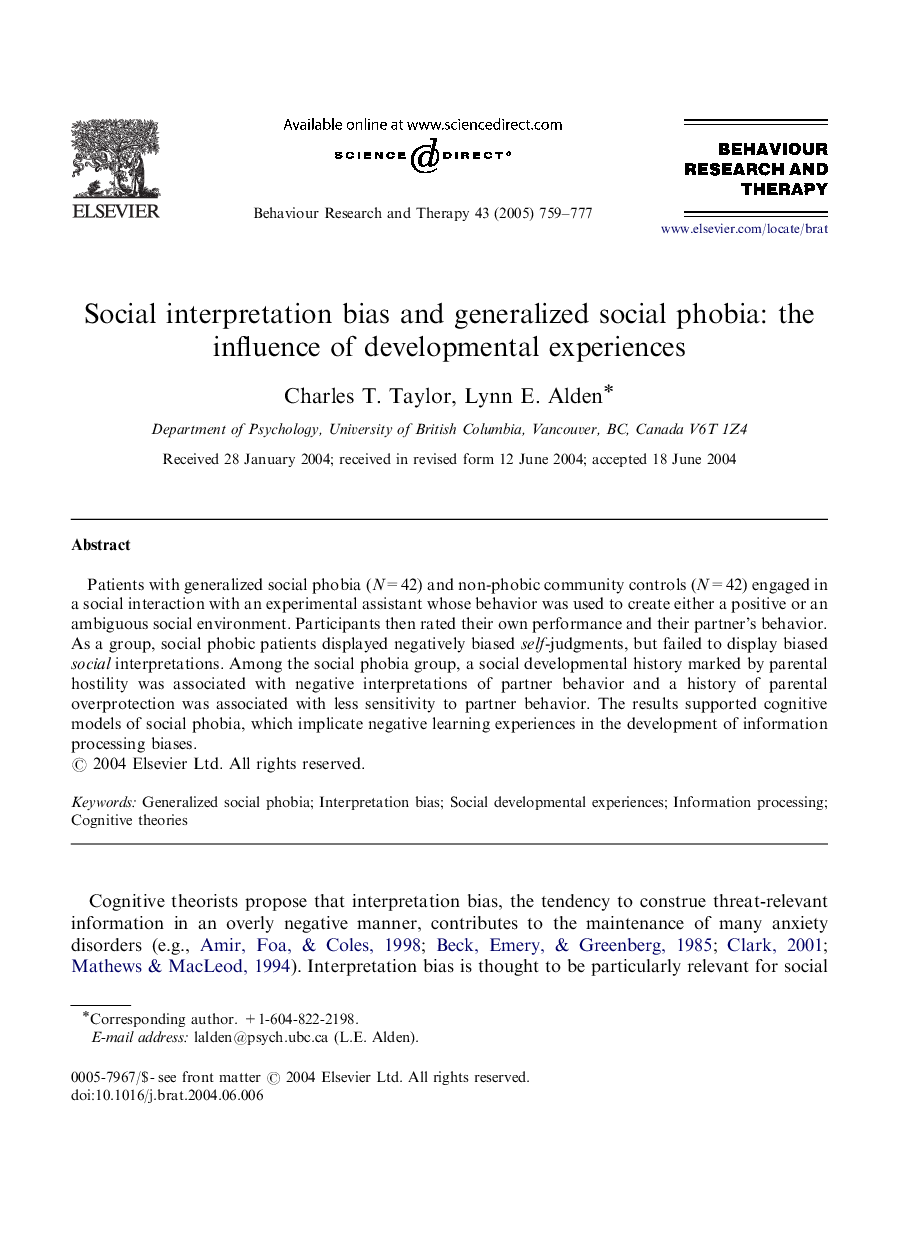| Article ID | Journal | Published Year | Pages | File Type |
|---|---|---|---|---|
| 10445251 | Behaviour Research and Therapy | 2005 | 19 Pages |
Abstract
Patients with generalized social phobia (N=42) and non-phobic community controls (N=42) engaged in a social interaction with an experimental assistant whose behavior was used to create either a positive or an ambiguous social environment. Participants then rated their own performance and their partner's behavior. As a group, social phobic patients displayed negatively biased self-judgments, but failed to display biased social interpretations. Among the social phobia group, a social developmental history marked by parental hostility was associated with negative interpretations of partner behavior and a history of parental overprotection was associated with less sensitivity to partner behavior. The results supported cognitive models of social phobia, which implicate negative learning experiences in the development of information processing biases.
Related Topics
Health Sciences
Medicine and Dentistry
Psychiatry and Mental Health
Authors
Charles T. Taylor, Lynn E. Alden,
